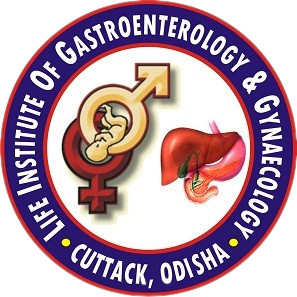Hypertension in pregnancy refers to high blood pressure during pregnancy, potentially leading to complications for the mother and baby.
Types of Hypertensions in Pregnancy
- Gestational Hypertension: It occurs after 20 weeks of pregnancy, marked by high blood pressure without protein in the urine or other preeclampsia symptoms.
- Chronic Hypertension: It ishigh blood pressure that is either present before pregnancy or diagnosed before the 20th week of gestation. This condition may continue or even worsen as the pregnancy progresses.
- Preeclampsia: It develops after 20 weeks of pregnancy. It is characterized by high blood pressure along with signs of organ damage, such as protein in the urine and liver issues. If left untreated, it results in serious complications.
Clinical Symptoms
- Elevated blood pressure readings
- Swelling in the hands, feet, and face
- Severe headaches
- Blurred vision
- Sudden weight gain
- Pain in the upper right abdomen
- Decreased urine output
Risk Factors
Pre-existing conditions:
- History of hypertension or kidney disease.
Pregnancy-related factors:
- First pregnancy.
- Multiple pregnancies (twins, triplets).
- History of preeclampsia in previous pregnancies.
Lifestyle factors:
- Obesity.
- Lack of physical activity.
- High-sodium diet.
Genetic predisposition:
- Family history of hypertension or preeclampsia.
Diagnosis:
- Regular Monitoring: Routine blood pressure checks during prenatal visits.
- Urine Tests: To detect protein levels indicating potential preeclampsia.
- Blood Tests: To assess liver and kidney function.
- Ultrasound: To monitor fetal growth and detect potential complications.
Management and Treatment:
Lifestyle Changes:
- Implementing a low-sodium diet.
- Increase physical activity
Medications:
- Antihypertensive drugs to manage blood pressure.
- Supplements like calcium or magnesium if recommended.
Delivery Planning:
- In severe cases, early delivery may be necessary to protect both mother and baby.
Prevention and Follow-Up:
- Early Prenatal Care: Regular check-ups to identify risk factors early.
- Healthy Lifestyle: Maintaining a balanced diet and regular exercise.
- Postpartum Monitoring: Continued monitoring of blood pressure after delivery to ensure it returns to normal.
Understanding and managing hypertension in pregnancy is crucial for the health of both mother and baby. Regular monitoring, early intervention, and adherence to medical advice can significantly reduce risks and ensure a healthier pregnancy outcome.


